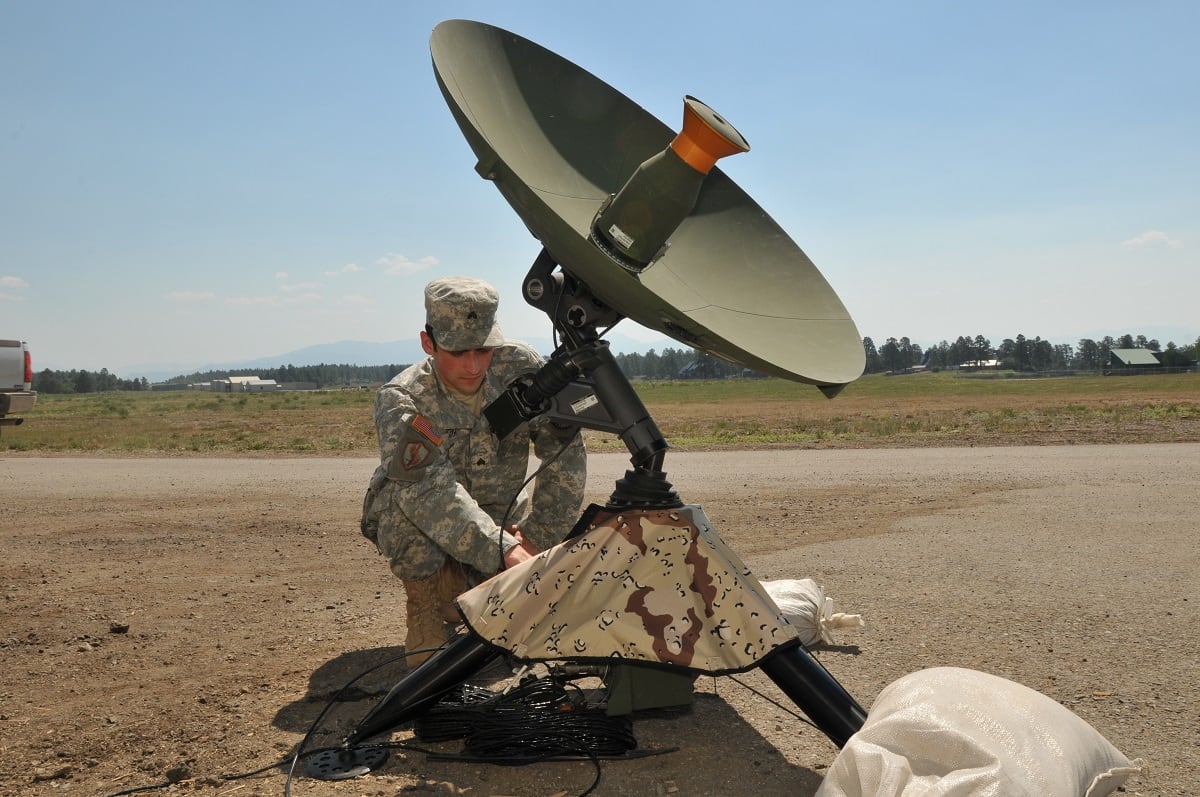While the buzz of the summer among some military circles was the creation of a Space Force — a force that still has many pundits scratching their heads as to what it will look like — a group of soldiers, working in small, six-person teams, is already tackling space for Army commanders.
Two senior enlisted soldiers with the Colorado Army National Guard’s 117th Space Battalion laid out for reporters Wednesday some of their ongoing work to give soldiers on the ground the view from space.
Command Sgt. Maj. Frederick Korb III and Staff Sgt. Joseph Fauskee explained that their unit’s dozen Army Space Support Teams, or ARSSTs, make up nearly half of all such teams across the active Army, Army National Guard and Army Reserve.
They integrate at the division staff level and run a host of duties, from tracking wildfires in the United States, to partnering with missile defense teams to spot incoming threats or alert the commander before the launch even occurs.
Asked how soon they would know of a North Korean missile launch, Fauskee had an even quicker reply.
“Typically, we would know before it launches,” the staff sergeant said.
That’s not all, though.
The teams give imagery and imagery analysis to commanders and can also help deconflict GPS assets and help leaders figure out which space-dependent assets they can employ and how best to use them in a complex fight.
At a tactical level, their work hits the lowest levels, even down to squad movement. Though soldiers at that level likely won’t know they were even involved, Korb said.
“It does trickle down to those unit levels,” Korb said. “We’re telling planners what is out there, what’s happening, where they can go, where they can’t.”
In some ways, the kind of work that the unit’s been doing since at least 2007 is ahead of what the Army is now focused on — Multi-Domain Operations.
The MDO concept, which is fast becoming core Army warfighting doctrine, aims to pull in all domains: sea, air, land, cyber and, of course, space.
The standard platoon, company, battalion, even brigade commander, has spent a career thinking about the tangible, geographic forms of where they’re fighting, terrain that hasn’t changed much since warfighting began.
And while advancements in computing have brought cyber into the forefront of military strategy, space has been there since the United States and the Soviet Union first launched satellites.
Despite U.S. dominance in most of the other domains for decades, space remains open.
“Our peers are involved in space operations as much as we are,” Fauskee said. “We have to be very deliberate.”
Both soldiers declined to comment specifically about countermeasures but admitted that increasing instances of GPS-degraded or denied environments present new problems with older solutions.
Korb said part of their job is not only to educate senior leaders on the high-tech solutions they have with space-based equipment, but also that those items won’t always be available, and old fashioned “perishable skills” such as map and compass reading remain critical on the future battlefield.
“You have to use a map and compass,” Korb said. “That vehicle isn’t always going to run, that GPS isn’t always going to work.”
Todd South has written about crime, courts, government and the military for multiple publications since 2004 and was named a 2014 Pulitzer finalist for a co-written project on witness intimidation. Todd is a Marine veteran of the Iraq War.








